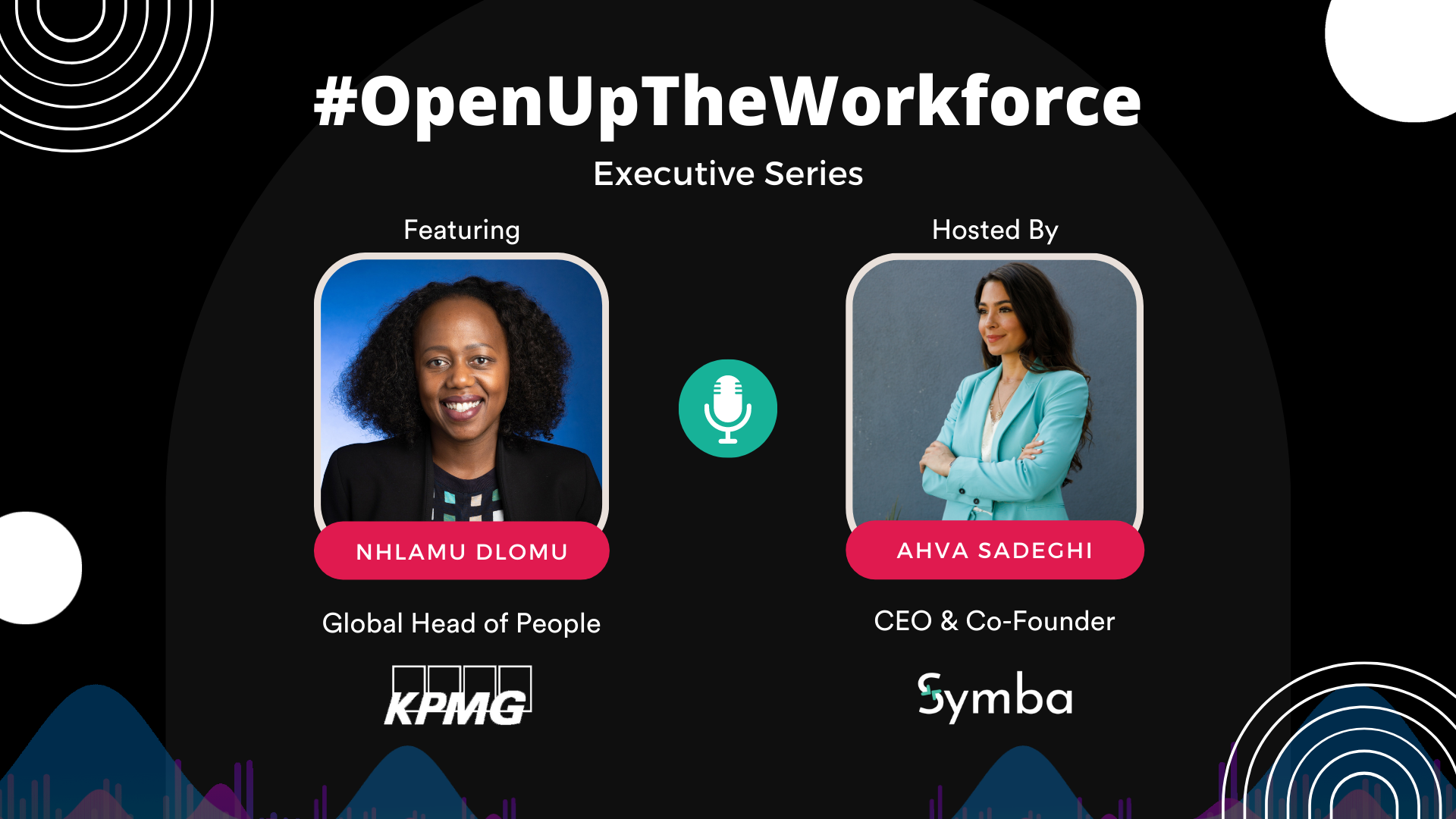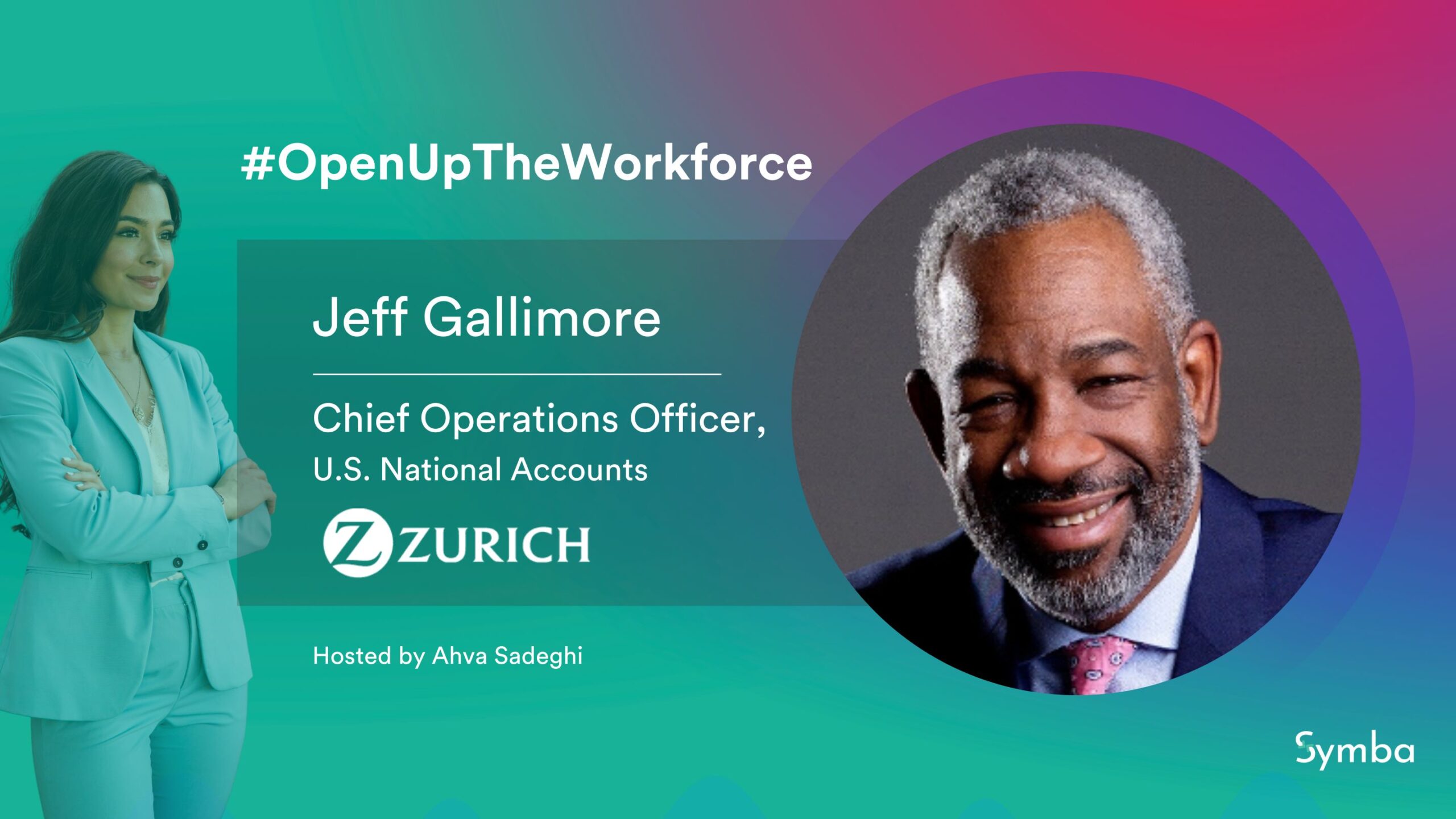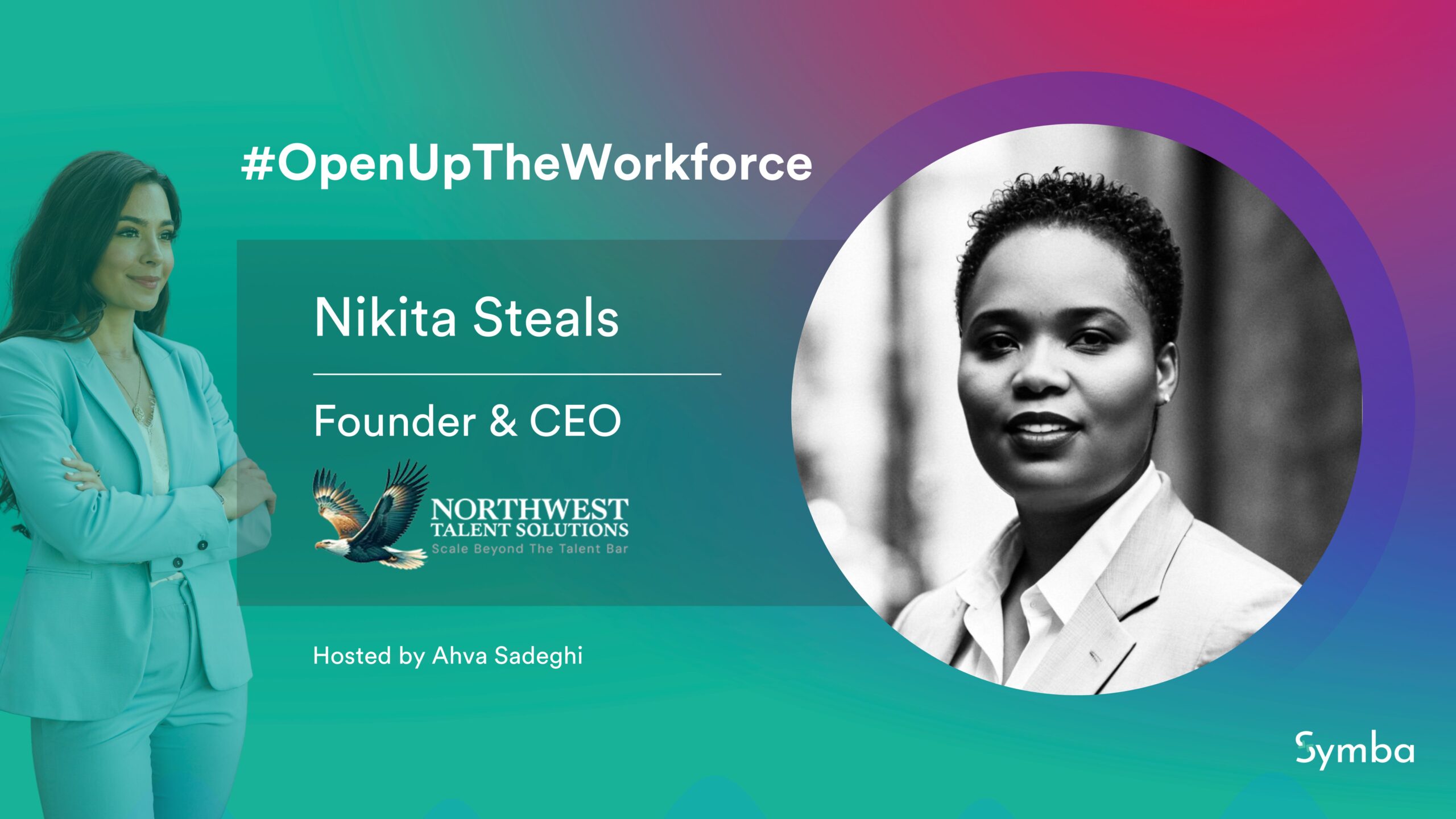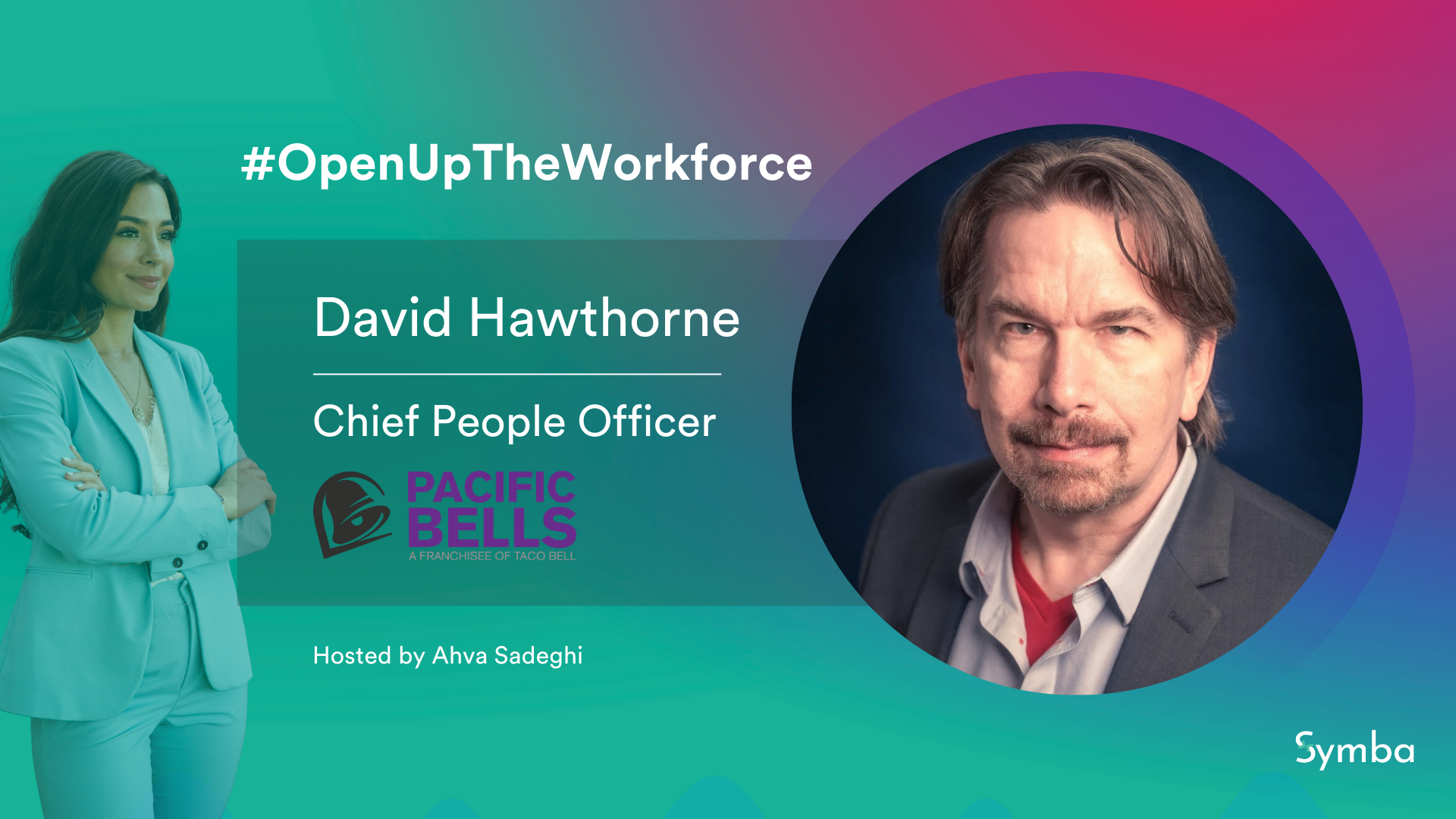Presented by Symba, #OpenUpTheWorkforce interviews feature executives advancing inclusion, diversity, and equity for the future of work. In these short audio-only episodes, we talk with top leaders about what it takes to develop and implement inclusive processes.
In this episode of #OpenUpTheWorkforce, Ahva speaks with Nhlamu Dlomu, Global Head of People at KPMG International. Nhlamu’s background spans clinical psychology, consulting, and HR executive roles. Her experience with change management and focus on inclusion, diversity, and equity has been instrumental in shaping KPMG's people commitments and driving meaningful change within the organization. Listen here.
Driving conversations and collaboration through innovative platforms
After the tragic event surrounding George Floyd's death, KPMG took a proactive approach to foster dialogue and understanding within the organization. Nhlamu shared how they utilized a digital platform for a 72-hour period, inviting employees to share their experiences, struggles, and educational resources related to racial and ethnic issues. 17,000+ people engaged in the virtual event. This initiative sparked conversations, gathered valuable data, and provided an opportunity for senior leaders to engage in meaningful discussions. Nhlamu describes the event, “we had specific questions we wanted people to answer that start a conversation...What we saw was absolutely amazing. People's willingness to share their personal experiences, a lot of pain, but also a lot of relief in terms of being heard and sharing real lived experience.” Each day Nhlamu and her team summarized the conversations and would build upon the themes that surfaced in the next day’s sessions. The three days resulted in the development of three core areas that guide inclusion, diversity and equity at KPMG.
Prioritizing inclusion to foster belonging, education, and advocacy
The KPMG: Our Impact Plan - KPMG Global defines three pillars within their People commitments – 1) An inclusive culture, built on trust, 2) An educated, empathic workforce, and 3) An advocate for equal opportunity. Nhlamu explains, "We start with inclusion because we believe that it's critical to build a sense of belonging for everyone." To advance the goals for an educated workforce and to become an advocate for equality as a firm, KPMG invests and reports on Learning & Development. They teach foundational skills like digital and data analytics, and also the fundamentals of environmental, social, and corporate governance (ESG) so employees understand how they can contribute and get involved with impact initiatives. Nhlamu shares, “We do want our people not only to talk about ESG in the local terms, but to really understand how they can contribute and what it means, and their role in it.” Alongside facilitating trainings, KPMG reports on hours spent learning and the budget spent on educating their people.
Supporting employee health and wellbeing
Nhlamu and Ahva explore strategies to improve the health and wellbeing of employees, especially in the context of increasing workloads and stress. Nhlamu notes that there are a myriad of applications that support mental and physical health, many of which KPMG provides to their employees among their expansive support services. Beyond that, Nhlamu shares, “The main question we've been asking ourselves is what are the things that we can control, that we can help our people by managing better? So it's, what are the causal issues of people feeling overloaded?” Nhlamu notes how reports around employee burnout, stress, and workloads have been abundant. For the past 18 months or so, KPMG has focused on identifying and managing the root causes of wellbeing challenges to ensure a healthier work environment, helping their employees find harmony between work and life.
Creating a collaborative firm culture and flexible work arrangements
Constructive collaboration is critically important for any global operation to be successful. Nhlamu mentions, “We always talk about together and for better, which are two of our values that, we always are better when we work together.” Working with 144 heads of people in 144 countries, Nhlamu explains how she ensures KPMG’s culture stays consistent yet culturally sensitive, “I work quite closely with those heads of people to make sure that the strategies that we're putting together are infused with the reality on the ground.” Nhlamu provides a beautiful simile, describing KPMG’s structure as a book with each country informing a chapter so that the strategy accounts for cultural nuances.
When it comes to flexible work arrangements, KPMG has long offered a hybrid work environment where consultants work from the office or with a client, and now there’s a third dimension of working from home. KPMG invests in technology and resources (like a home office) to support those that are looking for agency and a flexible work environment. Nhlamu observes that in the changing world of work, people are looking for more choice. She shares the example of Daniel Pink’s three areas of motivation – autonomy, mastery and purpose – and that “those are the things that this remote world of working [is calling for]...we've got fundamental principles that we're going to follow but we also encourage team leaders and managers to determine how it gets done at a more localized level to make sure that people feel heard to make sure that, we actually accommodate as much as possible. But we also strongly encourage people to meet as teams and to still have that personal touch as well.”
What do leaders need to do to #OpenUpTheWorkforce?
Nhlamu responds, “One of the big conversations that everybody's having is the changing nature of the skills that are needed in business.” She shares that there is an opportunity for business leaders to provide training programs, like apprenticeships, and easier access to skills development so more people can join the workforce. Nhlamu adds, “The other side to this is also challenging ourselves to go where we don't normally go to search for skills and create opportunity for more people to join. We've started looking at diverse areas where we can recruit.” KPMG is known for recruiting from universities. Now they are stretching the number of universities that they recruit from, exploring apprenticeship models, and as Nhlamu confidently states, “are a training ground.” KPMG has committed to economically empower 10 million disadvantaged young people between now and 2030.
By prioritizing inclusion, fostering meaningful conversations, and addressing employee wellbeing, Nhlamu Dlomu demonstrates how KPMG drives positive change. Through collaboration and a focus on shared values, KPMG strives to create an environment where every employee can thrive and contribute to the organization's success, and sets a strong example for other organizations to follow.
About Nhlamu Dlomu
Nhlamu Dlomu is the Global Head of People for KPMG International, a role she assumed in July 2019. She sits on the firm’s Global Management Team and is responsible for leading the execution of a leading-edge Talent Strategy for our 265,000 people across 144 countries. Prior to her current Global Head of People role, Nhlamu was the CEO of KPMG's South African firm, and more recently served as KPMG's Head of Global Culture and Organizational Development
Nhlamu’s background is mainly in Management Consulting and she returned to the firm in 2012 as a direct entry Partner to lead the People and Change division within KPMG’s Management Consulting. She rebuilt the People and Change team to be a significant contributor within South Africa’s Management Consulting team. In 2015, she was asked to assume the Head of People role for the South African firm and she was also voted onto the Board of KPMG SA. From 2015-2017, Nhlamu held both roles, until she was asked to lead the firm through its major crisis in September 2017.
Nhlamu has also been part of global leadership teams, she was a member of the KPMG Global Inclusion and Diversity Steering Group and Management Consulting’s People and Change Global Centre of Excellence Leadership Team.
She has almost 20 years of experience that spans management consulting, human resources and organisational development gained across various industry sectors.
Nhlamu also previously held an HR Executive (Organisational Development) role for one largest banks in South Africa and also co-founded a small boutique consulting firm. Nhlamu’s skills include executive management, HR Transformation, Culture Change, and developing and leading large-scale transformation projects in the areas of Organisational Design, Strategic Talent Management and Leadership development.
.
.
.
You can view other episodes of #OpenUpTheWorkforce here. Are you an executive leader increasing access to jobs and wealth creation? Request to be featured and show us how you #OpenUpTheWorkforce.





